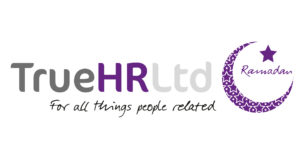Across the UK, from the 2nd April until the 2nd May, thousands of Muslims will be fasting during daytimes to mark Ramadan – with many continuing to work during this period as well.
Ramadan is the most important and sacred month in Islamic culture. The month requires spiritual discipline and is a reminder of things we should be grateful for, such as necessary items like food and water.
This year the average fasting time will be around 14 hours (without food or drink, including water). The morning meal will be before dawn, the start of the fast, and will end at dusk, or sunset.
The combination of long hours and hot days can be challenging for those fasting during this period. While fasting should not interrupt everyday tasks at work, during Ramadan employees and colleagues who are fasting may be tired and not have their usual energy levels.

It’s important that during this time organisations are aware and supportive of anyone who is undertaking the fast.
Below are our top tips for supporting Muslim employees and colleagues in your organisation during Ramadan this year.
Ask someone if they’re observing Ramadan
Simply asking a Muslim colleague or employee if they will be observing Ramadan will help clear up any uncertainty.
Some people may choose not to take part – perhaps for medical reasons – as fasting is a personal choice. If you ask in a polite way, you will be able to understand their personal circumstances.
Be considerate
Ramadan should not impact daily tasks at work, but fasting employees may be tired or lack energy during the day – especially the first 10 days, as these are the hardest.
If you have colleagues who are fasting, ask them if changing some aspects of work can make it easier for them or if you can pick up any of their daily tasks to make their days a little easier.
Flexibility is key
Ramadan isn’t only about not eating or drinking during daylight hours.
It can also mean rising early, eating late and participating in late-night prayers at the mosque or their homes. It is a time for deep spiritual reflection, congregational prayers, and lots of social dinners with family and friends.
Organisations need to be flexible and understanding during this time as some workers may ask to change their working day or shift patterns to make sure they finish on time so they can break their fast at a time that is better suited to them.
By being flexible, an organisation can help people work when they are most productive.
Some workers might have additional religious commitments during Ramadan. As an employer, you can help by ensuring there’s a quiet space in the workplace for prayers and by allowing short breaks if needed.
The last ten days of Ramadan are especially sacred. Some Muslim workers might decide to take time off or ask to change their working patterns to perform all-night prayers – again, flexibility is key during this time. And remember that Eid, at the end of the Ramadan period, is as important for a Muslim as Christmas is for a Christian so further requests for time off need to be managed and where possible accommodated.
Honest, open dialogue is key to ensuring the team is up to date on any changes and that the employee feels supported and accepted in however they are honouring Ramadan
Learn about Ramadan
As an inclusive organisation, you want to ensure that any Muslims and individuals undertaking Ramadan feel understood and supported during this period.
By offering training and sharing useful information with the wider organisation, you can help educate about Ramadan and its rituals; set expectations with the wider team during the time and have regular check-ins with Muslim colleagues.
Some organisations have also encouraged other non muslim employees to fast alongside their colleagues to help them understand what they are feeling and experiencing. You may wish to do that whilst raising money for a local cause.
Review team socials
Team socials, networking, work events and training might be a struggle during Ramadan as they could clash with iftar, prayers or the breaking of the fast.
When planning work-related events and socials, consider how these can be planned with clashing with Ramadan, or can they be undertaken after the month?
Being considerate of the timings of Ramadan and the impact it will have on work related socials will ensure that Muslim employees and colleagues feel recognised and included.
Check your policy and practices
- Religious Beliefs – it is against the law to treat an employee less favourably because of their religion or belief. This means that employers cannot dismiss someone, refuse to promote someone or deny training to someone because of their religion. It would therefore be helpful to have a policy on how you will deal with such religious festivals, of all religions and within it set out a procedure for managers to follow. Outline your approach, clearly citing rights and information for support, and be inclusive and open.
- Harassment and Equal Opportunities Policy – To protect employees and prevent any potential religious harassment during Ramadan, you should make sure to remind the workforce of your harassment policy and that action will be taken against anyone found responsible for offensive behaviours or inappropriate ‘banter’.
- Private Prayer – consider giving your Muslim employees a safe and private space to pray. This can be as simple as letting them have a meeting room to themselves for 15 minutes. You could also allow them time to go to a local mosque.
For additional support and information on how to support Muslim employees during Ramadan in the workplace, seek an independent HR advisor for guidance.


